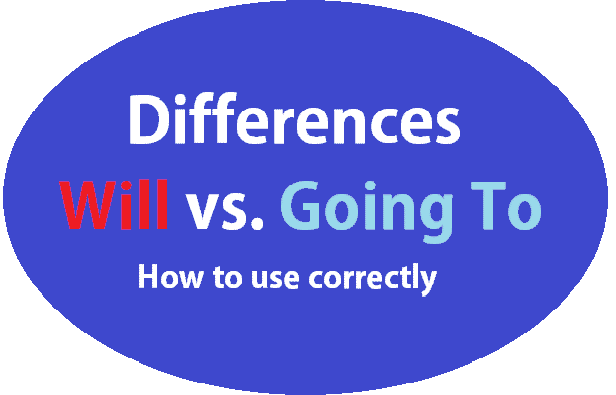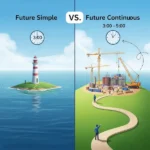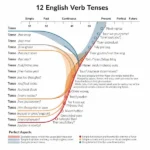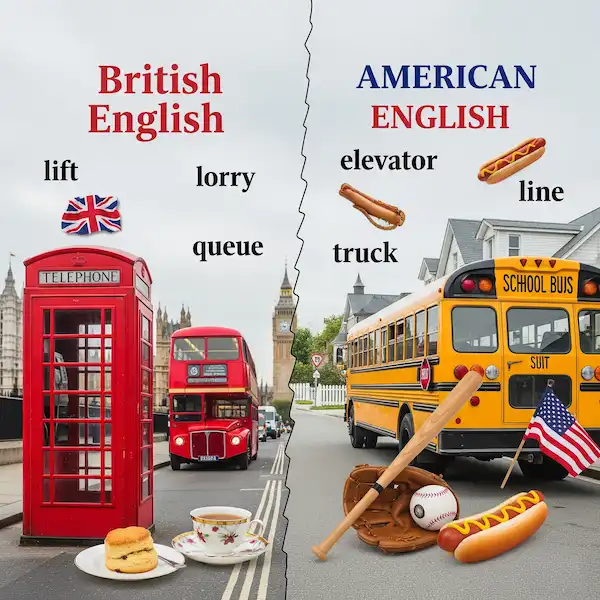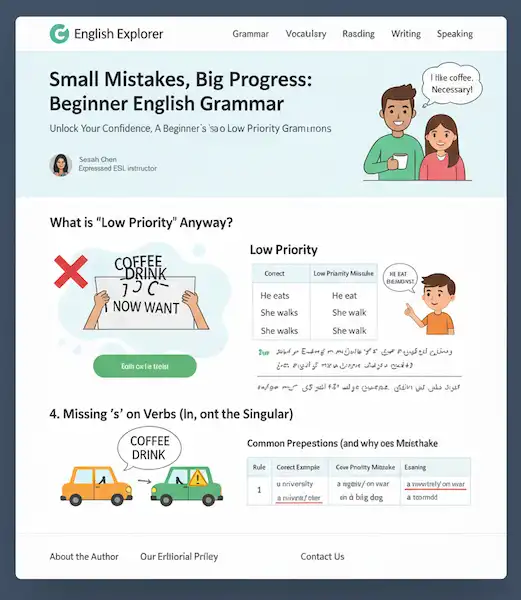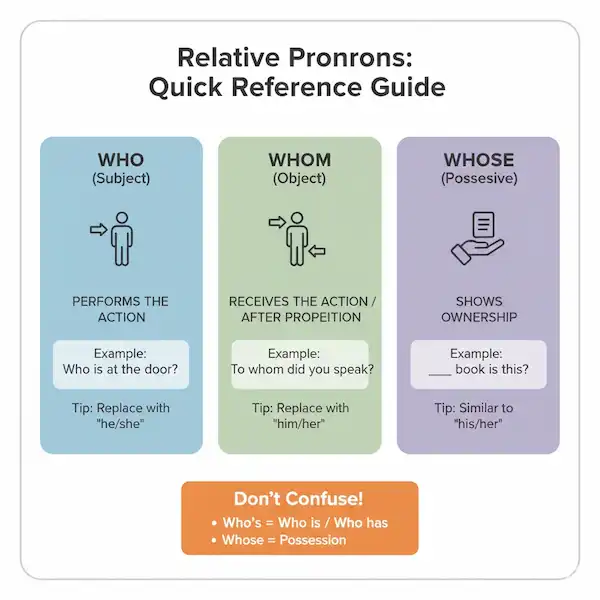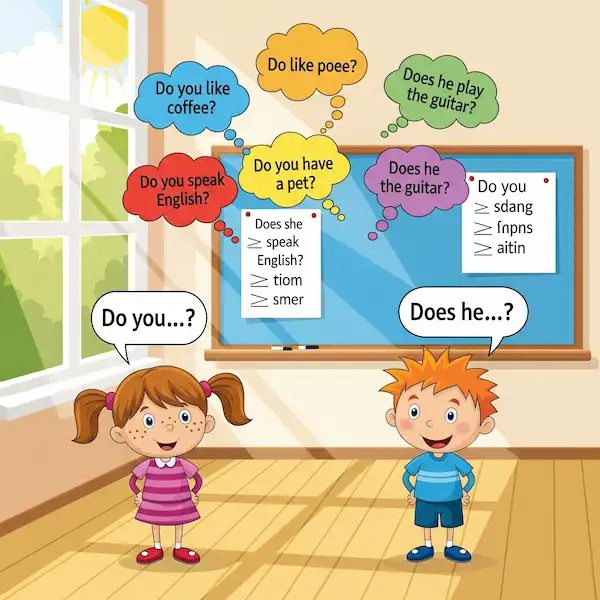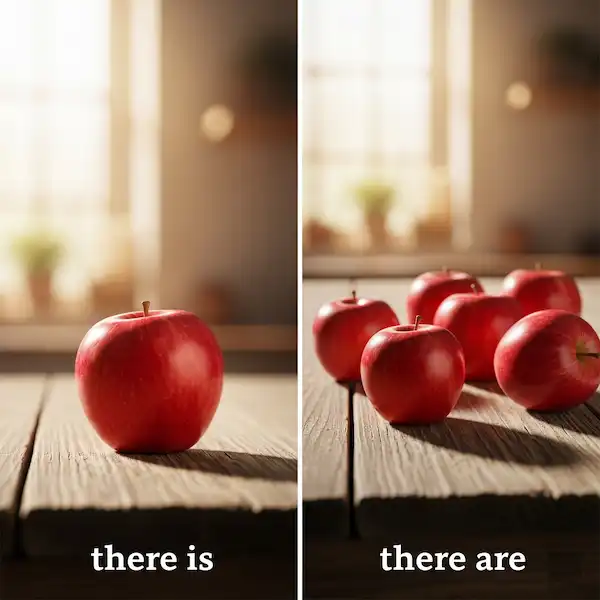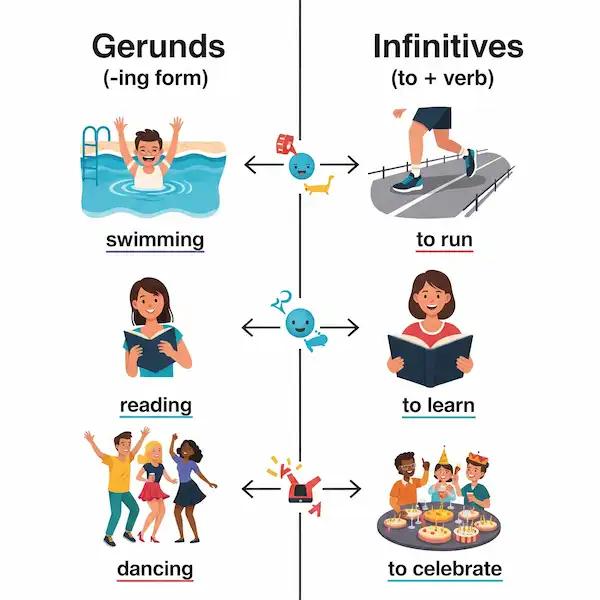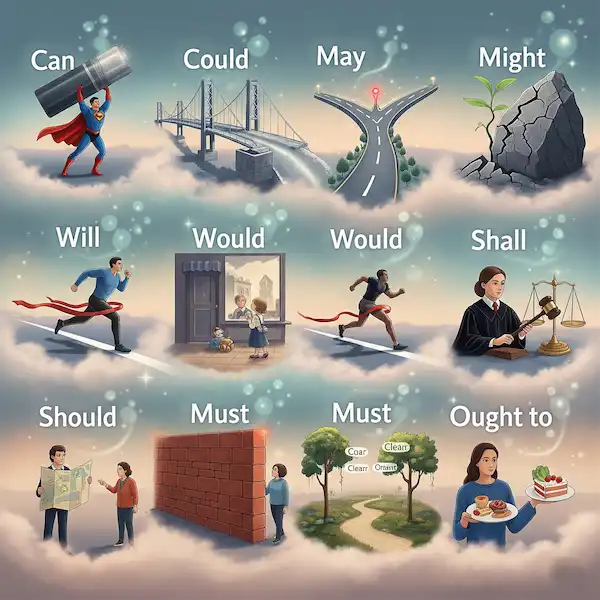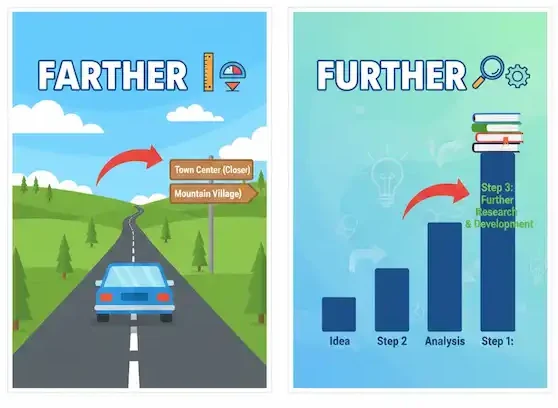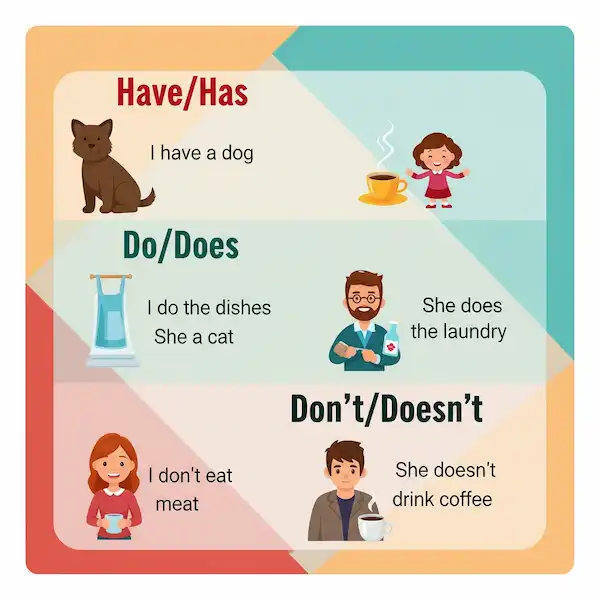Will or Going to: When and How to Use Them?
Are you sometimes confused about when to use “will” and “going to”? Don’t worry, you’re not alone! These two expressions are super common for talking about the future in English, and with a little practice, you’ll be using them like a pro. Learn more about how to use Will or Going To.
This article will help you understand the differences and similarities between Will or Going To with lots of easy examples and helpful charts. Let’s dive in!
Imagine you’re planning your weekend. How would you talk about it? Would you say, “I will go to the beach,” or “I am going to go to the beach”? Both are possible, but they carry slightly different meanings.
The key to understanding “will” and “going to” lies in when you make the decision about the future action and how certain or planned that action is.
1. “Will”: For Spontaneous Decisions, Predictions, and Promises
We often use “will” when we decide something at the moment of speaking. It’s like a sudden thought or a decision you make right then and there.
Structure: Subject + will + base form of the verb
Examples:
- “Oh, it’s raining! I will take my umbrella.” (You just noticed the rain and decided to take the umbrella.)
- “I’m thirsty. I will get a glass of water.” (You just realized you’re thirsty.)
- “I promise, I will help you with your homework tomorrow.” (A promise made now.)
When to Use “Will”:
| Use Case | Explanation | Example |
| Spontaneous Decisions | Decisions made at the moment of speaking, without prior planning. | “I forgot my wallet. I will pay with my card.” |
| Predictions (General) | When you predict something will happen, often based on your opinion. | “I think it will be sunny tomorrow.” |
| Promises & Offers | When you make a promise or offer to do something. | “Don’t worry, I will call you later.” |
| Requests | When you ask someone to do something. | “Will you please close the door?” |
| Refusals | When you refuse to do something. | “I will not (won’t) tell you my secret.” |
| Habits & Tendencies | To describe predictable behavior or tendencies (less common for beginners). | “Oil will float on water.” |
Contractions with “Will”:
- I will = I’ll
- You will = You’ll
- He will = He’ll
- She will = She’ll
- It will = It’ll
- We will = We’ll
- They will = They’ll
- Will not = Won’t
2. “Going to”: For Planned Actions and Predictions Based on Evidence
“Going to” is used when you have already made a plan or decision before the moment of speaking. It’s about something that is already arranged or is clearly going to happen based on present evidence.
Structure: Subject + verb “to be” (am/is/are) + going to + base form of the verb
Examples:
- “We are going to visit my grandparents next weekend.” (This is a plan you made previously.)
- “Look at those dark clouds! It is going to rain.” (You see evidence (dark clouds) that rain is coming.)
- “I am going to study for my exam tonight.” (You decided to study before this moment.)
When to Use “Going to”:
| Use Case | Explanation | Example |
| Prior Plans / Intentions | Actions you have already decided to do. | “I am going to start a new job next month.” |
| Predictions (with Evidence) | When you predict something based on what you can see, hear, or feel now. | “Oh no, he’s driving too fast! He is going to crash!” |
| To describe a coming event | Something that is about to happen very soon. | “The play is going to begin in five minutes.” |
Comparison Chart: Will or Going to
Here’s a quick summary to help you remember the main differences:
| Feature | Will | Going to |
| Decision Time | Made at the moment of speaking (spontaneous). | Made before the moment of speaking (pre-planned). |
| Certainty | Often less certain, or a general prediction. | More certain, or based on current evidence/intentions. |
| Examples | “I’m hungry. I will make a sandwich.” | “I bought bread and cheese. I am going to make a sandwich for lunch.” |
| “I think the economy will improve next year.” | “Look at the stock market! The economy is going to improve.” | |
| “I will help you carry those bags.” (Offer) | “I am going to help my friend move furniture tomorrow.” (Prior plan) |
Considerations for English Learners – Thinking about Will or Going To
Tips for Beginners:
- Listen actively: Pay attention to how native English speakers use will or going to in movies, songs, and conversations.
- Practice, practice, practice: Try to create your own sentences using both forms.
- Don’t be afraid to make mistakes: It’s part of the learning process!
- Use context clues: Often, the surrounding words and situation will help you understand whether will or going to is more appropriate.
Additional Helpful Content: Future Simple Tense (A Quick Recap)
Both “will” and “going to” are used to talk about the future simple tense. There are other ways to talk about the future too (like the present continuous for fixed arrangements), but “will” and “going to” are excellent starting points for beginners.
Key Takeaway: While sometimes “will” and “going to” can be used interchangeably, especially for general predictions, understanding their core differences will make your English sound more natural and precise.
Test Yourself! Will or Going To – Practice Makes Perfect
Fill in the blanks with “will” or “going to”:
- I think it _______ (rain) later. (You just looked out the window and saw dark clouds.)
- Oh, the phone is ringing! I _______ (answer) it.
- My sister _______ (visit) us next month. She already bought her ticket.
- I promise I _______ (not be) late again.
- Look at that car! It _______ (crash)!
Answers:
- is going to rain
- will answer
- is going to visit
- will not (won’t) be
- is going to crash
Here is a PDF worksheet you can download with 25 practice questions using Will vs. Going to. The answers are on a separate page.
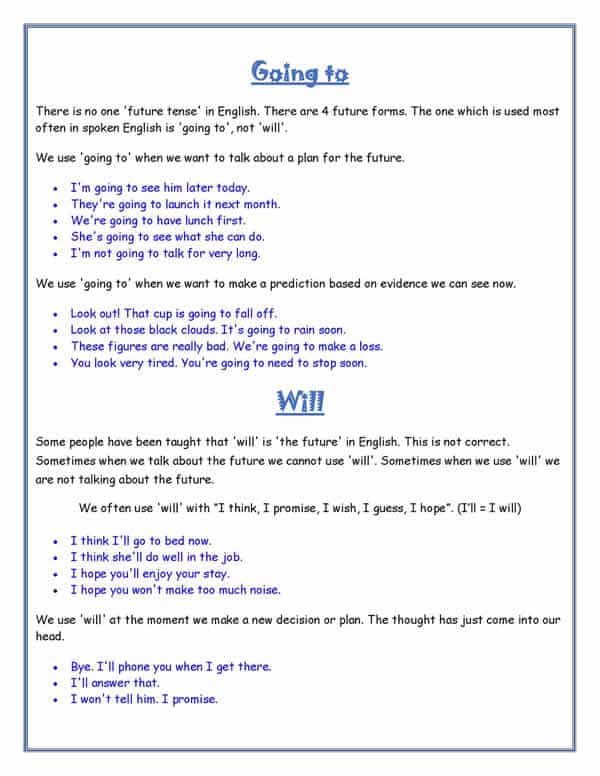
Additional helpful information
- More information about verbs – Third Person Singular – Add S to verbs
- Study about asking future questions with “Will” – Future Questions with Will – Yes/No & Wh-
External Links for Authoritative Sources:
For more in-depth explanations and exercises, you can refer to these trusted English learning resources:
- British Council: https://learnenglish.britishcouncil.org/grammar/b1-b2-grammar/will-and-going-to
- Cambridge Dictionary: https://dictionary.cambridge.org/grammar/british-grammar/future-will-or-be-going-to
- Grammarly Blog: https://www.grammarly.com/blog/will-vs-going-to/
By studying these resources and practicing regularly, you’ll soon feel much more confident using “will” and “going to” in your English conversations and writing. Keep up the great work!
